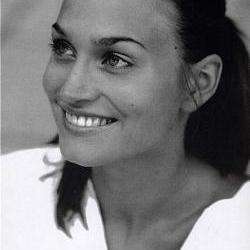In 2010 the Wiener Staatsoper premiered Medea by acclaimed German composer Aribert Reimann. Of Reimann’s eight operas, this was the first to grace the stage of the Haus am Ring. Fittingly, Ioan Hollander wrote the letter commissioning the work personally. Reimann chose material taken from three Grillparzer dramas: Medea as well as the first two offerings from his Golden Fleece trilogy, Der Gastfreund and Die Argonauten. Although Grillparzer is not much of a name outside the Germanic world – only John Irving fans will have heard the name mentioned disparagingly in The World According to Garp – his significance to Austria is considerable, and a number of his dramas are regular parts of the repertory in Vienna’s theatres. It was a wise choice then, for Reimann to choose such a specifically Austrian text for his composition. The première was welcomed with enthusiasm, leading the Staatsoper to relaunch it this season for a second run.
The story itself is one of betrayal, murder and desperation. In brief: Medea (Claudia Barainsky), a woman with powers, has accompanied Jason (Adrian Eröd) into exile to Corinth after helping him steal the Golden Fleece, one of these wonderful mythological objects which offer great power but also beset the owner with enormous difficulty. Jason no longer loves his wife, a fact bemoaned in the first scene by Gora (Monika Bohinec), her handmaiden. Jason acquires shelter for his family from a reluctant King Creon (Norbert Ernst) and his daughter Creusa (Stephanie Houtzeel), who distrust Medea’s power. Medea tries unsuccessfully to adapt to her new environment, a fact belied by her retention of Dagmar Niefind’s bright costumes and red dreadlocks. Jason and the children quickly and easily adapt, donning the bright white of the Greeks. The arrival of a herald of the gods (Daichi Fujiki) solidifies their lot, charging Medea and Jason with the murder of Pelias, Jason’s uncle. Medea is cast out, but Jason remains protected by Creon. He marries Creusa and agrees to give Medea one of the children back, but they also refuse to accompany her into exile. Medea is driven to furious revenge- she murders Creusa with the help of Gora and a bit of magic and slaughters her children. Jason is cast out and the piece ends with Medea heading to Delphi to return the stolen Fleece and turn herself over to the priests.
Musically, the work’s gravitas matches the heavy plotline. It is angular, dissonant, dense. Broadly scored, it consistently explores extremes of register both orchestrally and vocally, and incorporates various sounds with metallic character as well as whips and a diverse array of percussive elements. Hats off to Michael Boder who led the Philharmoniker deftly through the complex score.
Reimann uses and transforms M-E-D-E-A as a musical theme throughout, and each the six figures is musically characterized. Claudia Barainsky has a vocal part as the title character that is borderline impossible which she masters with brilliance and dexterity, fluttering up to high Fs, dropping, leaping and performing modern coloratura in a way that can only be described as superhuman. Although being heard in some of the more dramatically scored sections in the third act proves impossible, Reimann does well to keep out of her way most of the time. Interestingly the destructive female possesses the highest tessitura instead of being cast as a lusty alto. Not that there is no precedent; Berg’s Lulu springs quickly to mind.
Likewise, casting the herald as a countertenor instead of the bass-baritone opera standard is an innovative touch. Daichi Fujiki navigates his numerous oscillations with ease as his entourage, clad in silver, imperiously condemns Medea and Jason. Stephanie Houtzeel’s Creusa is characterized by flighty bells, celesta and harp, her coloratura skippingly underlining her character’s superficiality – if anyone gets to have a bit of fun in this piece, it is she. Monika Bohinec’s mezzo is exactingly precise, her focus and line impressive, and Norbert Ernst’s ringing tenor is beautiful. Adrian Eröd underpins the action throughout, effectively portraying the disinterested husband with minimal qualms about ditching his first wife for a more convenient blonde.
The only real disappointing aspect of the production was Marco Arturo Marelli’s stage design which was limited and industrial. A dreary landscape framed in grey dominates the stage, and the quarters of the wealthy “Greeks” are a cage-like cube, as cold as the metal stairway leading towards it. One can only assume the action was set on the moon; as Medea fills with rage, plastic rocks lightly bounce towards the audience, defying gravity and also our suspension of disbelief.
That aside, bravo to all involved in creating a strong musical experience out of what was nothing but an idea and reminding us that even institutions that thrive on curation can also innovate.


